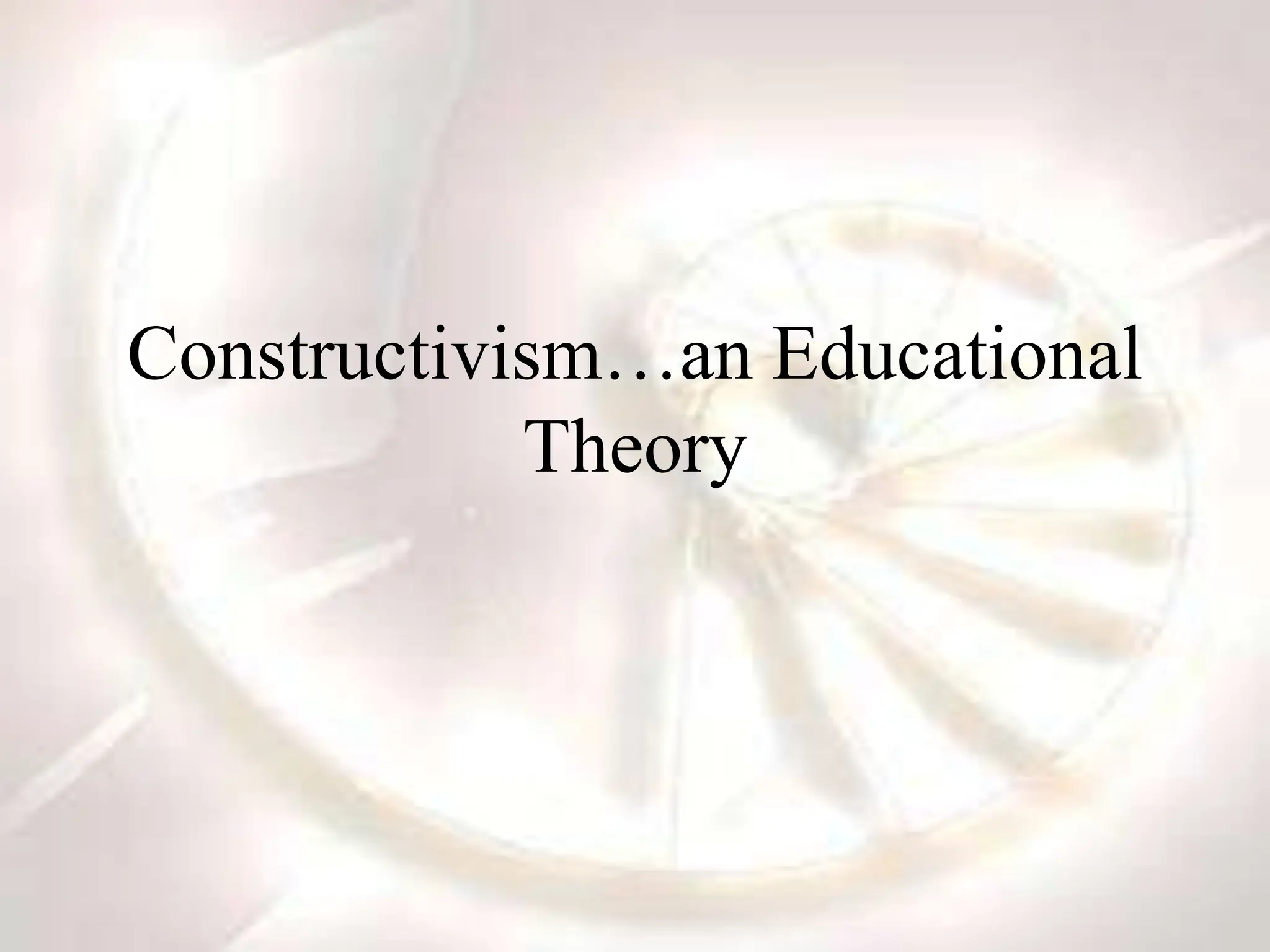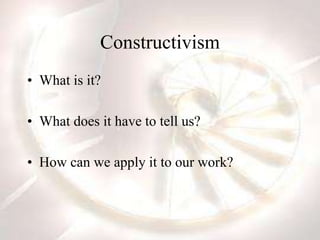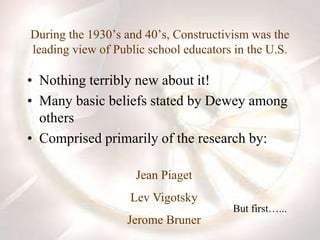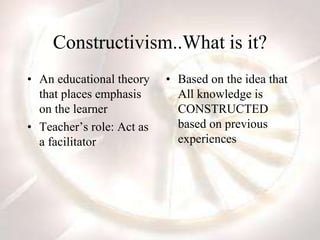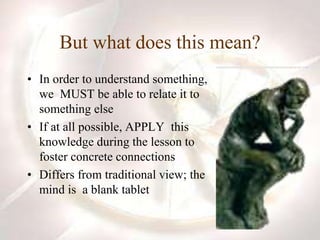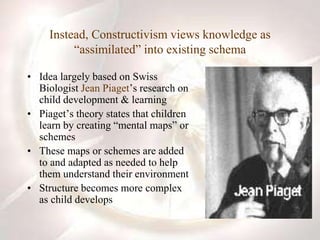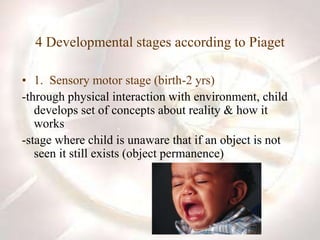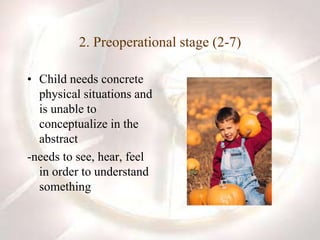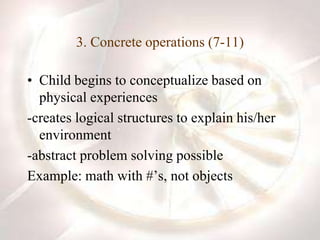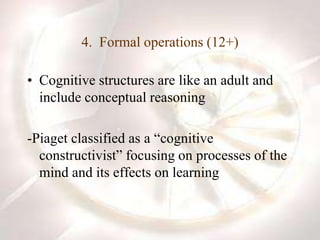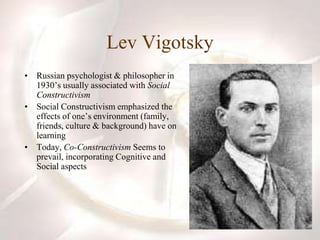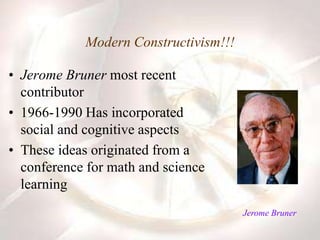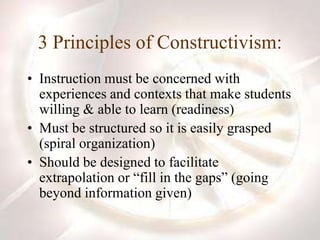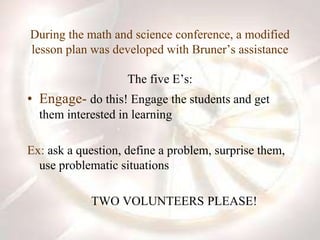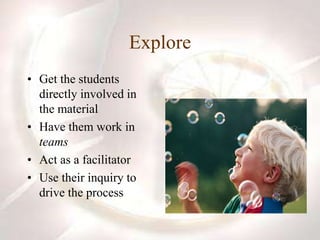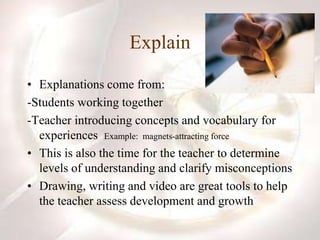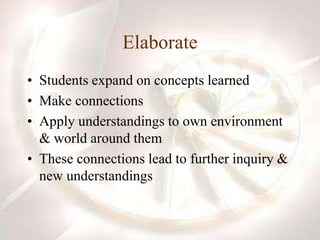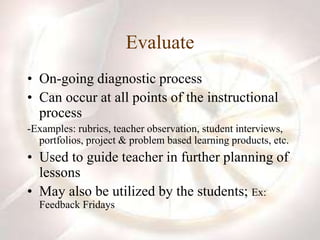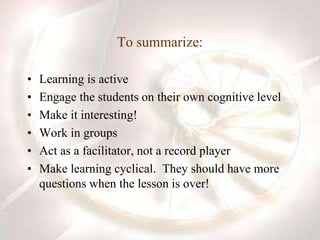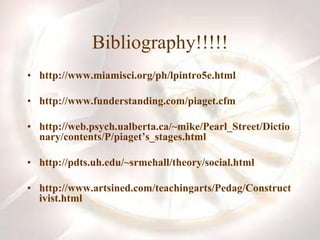Constructivism is an educational theory that emphasizes the learner constructing knowledge based on previous experiences. It views learning as assimilating new information into existing mental frameworks. According to constructivism, the teacher acts as a facilitator and students learn by relating new concepts to their own experiences. Jean Piaget identified four stages of cognitive development in which children create "mental maps" to understand the world. Lev Vygotsky added that social and cultural influences also impact learning. Modern constructivism, influenced by Jerome Bruner, incorporates both cognitive and social aspects. It advocates engaging students through exploration and hands-on learning before explaining concepts to facilitate new understandings.
